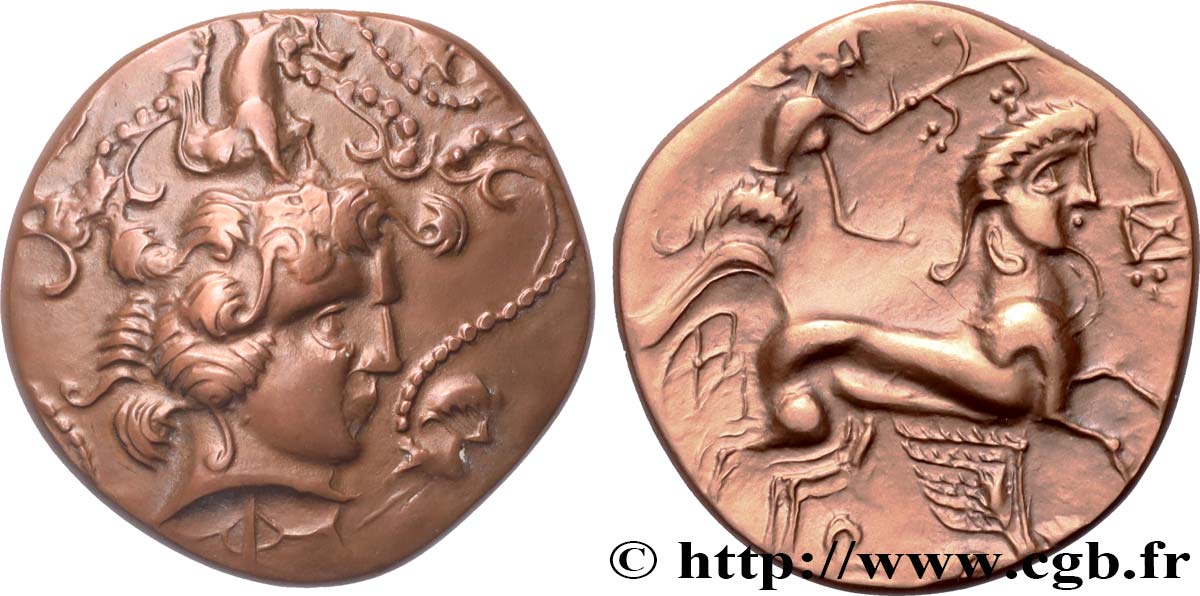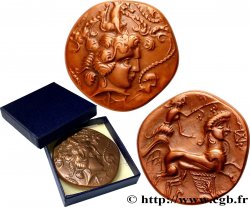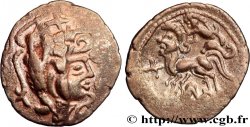fme_863554 - VENETI (Area of Vannes) Médaille, Reproduction du Statère d'or à l'hippocampe, n°171
90.00 €(Approx. 104.40$ | 79.20£)
Quantity
Add to your cart

Type : Médaille, Reproduction du Statère d'or à l'hippocampe, n°171
Date: 1978
Mint name / Town : Monnaie de Paris
Quantity minted : 500
Metal : copper
Diameter : 58,5 mm
Orientation dies : 9 h.
Weight : 149,16 g.
Edge : lisse + corne CUIVRE + 1978 + N°171/500
Puncheon : corne CUIVRE
Coments on the condition:
Patine hétérogène. Petites marques d’usure
Obverse
Obverse legend : ANÉPIGRAPHE.
Obverse description : Tête à droite, coiffée d'un hippocampe et entourée de cordons perlés auxquels sont attachées de petites têtes.
Reverse
Reverse legend : ANÉPIGRAPHE.
Reverse description : Cheval androcéphale à droite, l'aurige tient le stimulus ; devant le cheval, un vexillum ; génie ailé couché sous le cheval.
Commentary
Médaille numérotée avec sa boîte cartonnée bleue.
Numbered medal with its blue cardboard box
Numbered medal with its blue cardboard box








 Report a mistake
Report a mistake Print the page
Print the page Share my selection
Share my selection Ask a question
Ask a question Consign / sell
Consign / sell
 Full data
Full data














